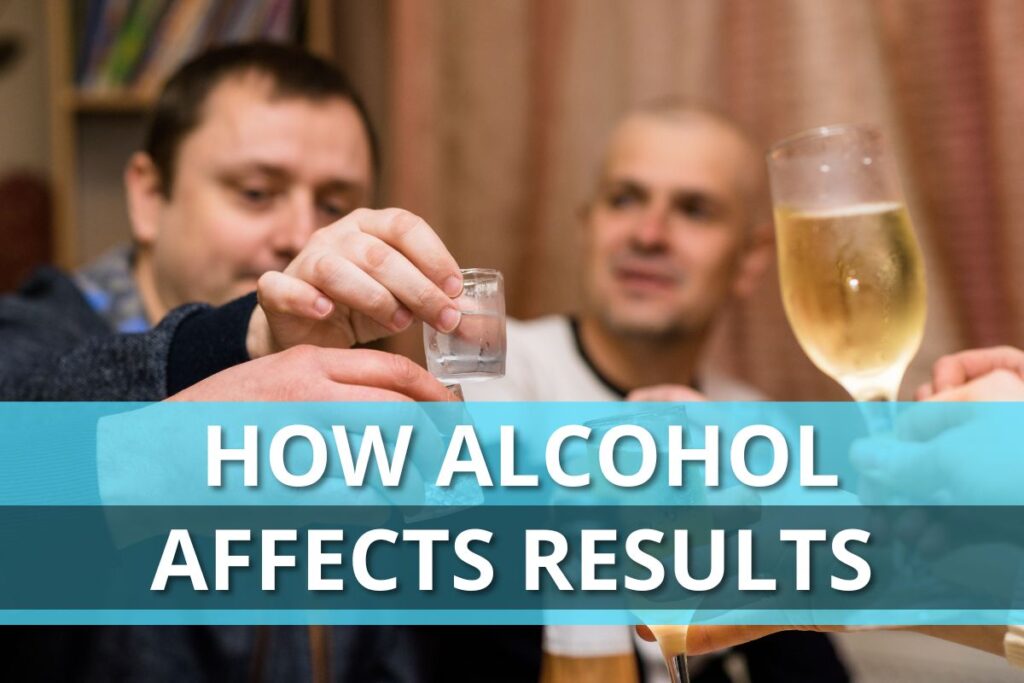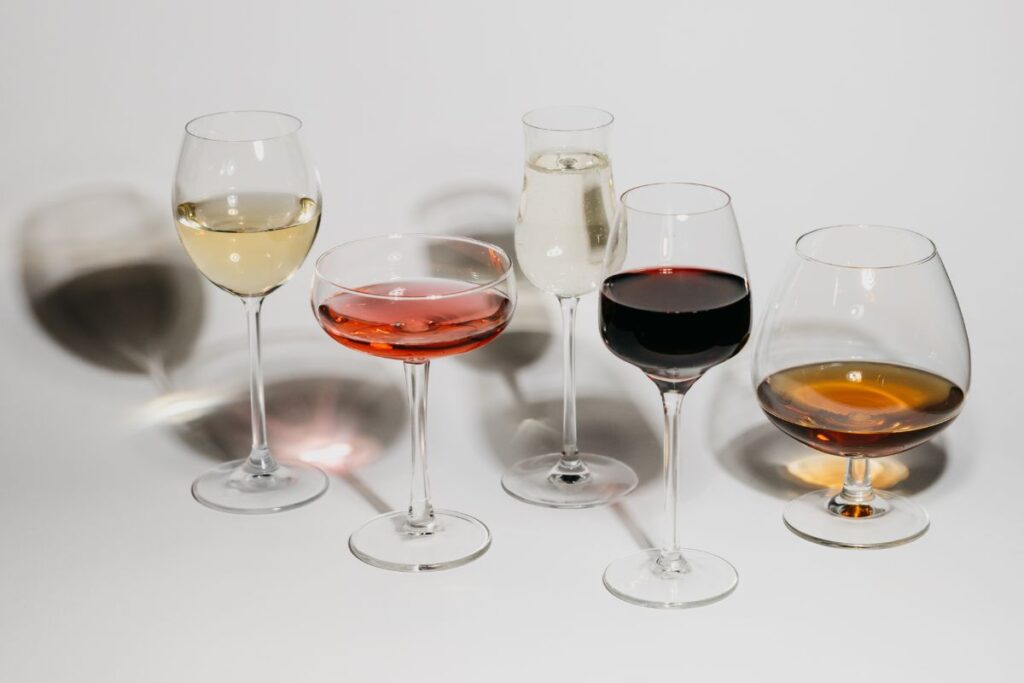How Alcohol Affects Results
Author:
Unlock your full potential by engaging with our experts and community! Have questions about your fitness journey or looking for expert advice on weightlifting techniques? Don’t hesitate — leave a comment below and Sergii Putsov will provide a personalized answer and insights to help you reach your goals.
Torokhtiy is reader-supported. Some links are affiliate links, and we may earn a commission at no extra cost to you. See our disclosure page for details.

The negative influence of alcohol on health is known long ago. Regular alcohol drinking affects many aspects of metabolism, nervous system functioning, cardiovascular system, thermoregulation, and skeletal muscles. Studying the influence of alcohol on sports results is not an easy task. For ethical reasons, few people want to get the athletes drunk and watch how it ends. The risk to cause serious harm to health is too high, as well as to harm sports results.
Most of the research was done on rats and only a few experiments were done involving humans. In this article, I will tell you what is known at the moment.
How alcohol affects muscle gain
Muscle protein synthesis is the driving force of the body’s adaptation to physical loads. The synthesis of muscle protein is directly related to the recovery and gain of skeletal muscles. During the recovery period after training, this process is significantly increased, so nutrition becomes a critical factor for muscle gain. During this period alcohol can negatively affect muscle gain.
According to one study, alcohol drinking interferes with muscle recovery after training. In particular, muscle protein synthesis declined when large quantities of alcohol were drunk for eight hours after training, especially when participants did not consume protein. Besides, this study found that even consuming an adequate amount of protein after training did not contain the negative effect of alcohol on protein synthesis. However, it is important to consider that the amount of drunk alcohol was equal to 1.5 grams per 1 kg of the athlete’s body weight, which corresponds to 12 standard portions of alcohol. Obviously it’s not just a lot but really a lot of alcohol.
You may like it:
In another study, alcohol drinking after training also weakened muscle gain. It is interesting that this effect was observed only in men, but not in women. This study demonstrated that it is better not to drink alcohol after strength training, as this can worsen muscle adaptation to training by reducing anabolic signal transmission.
There are several hormones that affect muscle gain very powerfully. For example, cortisol stimulates protein decay, and testosterone enhances protein synthesis. Studies have shown that high doses of alcohol after strength training increase the athletes’ cortisol levels and reduce testosterone secretion. For these reasons, it is necessary to avoid consumption of a large quantity of alcohol during the recovery period to athletes whose purpose is maximum muscle hypertrophy.
Alcohol can negatively affect results not directly but due to dehydration and deterioration of thermoregulation.

The negative influence of alcohol on hydration was known long ago. They started talking about its strong diuretic effect as early as 1948. Then it was found that each drinking gram of ethanol resulted in the excretion of an additional 10 ml of urine. Subsequently, a mechanism was discovered by which alcohol led to dehydration. Ethanol suppresses the activity of the antidiuretic hormone, whose task is to reduce water loss by kidneys. However, only drinks with alcohol content of 4% and higher have such an effect.
Beer is often included in the list of drinks for recovery after training, as this drink contains carbohydrates and electrolytes. But in fact, beer contains too few carbohydrates and electrolytes, so this drink cannot be considered as an adequate means to restore the balance of the liquid after training, in the process of which the athlete has sweated heavily. It is reasonable to conclude that the negative effects of drinking after training outweigh any potential beneficial effects.
Alcohol also relaxes smooth muscle, expanding peripheral blood vessels. This increases fluid loss as a person sweats more when blood vessels expand, further exacerbating dehydration.
Alcohol is a well-known depressant that reduces central nervous system excitability and impairs brain activity. It has been shown that the more alcohol we drink, the more it leads to imbalance, and the reaction and accuracy of movements become worse. In addition, alcohol can reduce sleep duration and quality, which in turn negatively affects physical performance.
To sum up, the impact of alcohol on sports results depends on several factors. It is important to take into account the amount of drinking, the frequency of alcohol drinking, as well as its impact on sleep and well-being. In research, athletes were given too much alcohol. Therefore it is possible to assume that periodic alcohol drinking in small doses will not have an expressed negative impact on sports results. But regular or periodic consumption of alcoholic beverages in large doses will undoubtedly not benefit.
Athletes are encouraged to follow the same safe drinking guidelines as a regular average person. A lot of alcohol is how much? It’s more than 2 portions of alcohol a day for men and more than 1 portion for women. One portion is 0.35l beer, 150 ml wine, and 45 ml strong drink (whiskey, vodka, gin, tequila).
My personal recommendation is if you don’t drink alcohol, it’s better not to start. But if you occasionally drink 2 portions of beer or 1 portion of whiskey, it won’t cross years of your workouts.
Also read:
Why Trust Us?
With over 20 years in Olympic weightlifting, strength training, nutrition coaching, and general fitness our team does its best to provide the audience with ultimate support and meet the needs and requirements of advanced athletes and professional lifters, as well as people who strive to open new opportunities and develop their physical capabilities with us.
By trusting the recommendations of our certified experts in coaching, nutrition, and sports training programming, as well as scientific consultants, and physiotherapists, we provide you with thorough, well-considered, and scientifically proven content. All the information given in the articles concerning workout programming, separate exercises, and athletic performance, in general, is based on verified data.
The product testing process is described in more detail here.
Author: Sergii Putsov
Head of Sport Science, PhD
Best Results: Snatch – 165 kg,
C&J – 200 kg
Sergii Putsov, Ph.D., is a former professional weightlifter and National team member, achieving multiple medals in the 94 kg weight category at national competitions. With a Master’s degree in “Olympic & Professional Sport Training” and a Sport Science Ph.D. from the International Olympic Academy, Greece, Sergii now leads as the Head of Sport Science. He specializes in designing training programs, writing insightful blog articles, providing live commentary at international weightlifting events, and conducting educational seminars worldwide alongside Olympic weightlifting expert Oleksiy Torokhtiy.




Still have questions after reading our article? Unlock your full potential by engaging with our experts and community! Don’t hesitate — leave a comment below and Sergii Putsov will provide a personalized answer and insights to help you reach your goals.